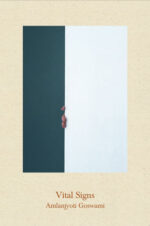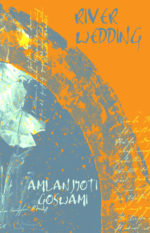-
Vital Signs
$16About The Book
What happens when you pay attention to which foot leads – when you walk? Or when we really attend to the pleasures of eating, or of a changing sky? What if we realised that paradise is found all around us – Shangri La behind bus stops?
Amlanjyoti Goswami’s poetry is full of these Vital Signs, these details of wonder. Stringing words on a high wire, his is a rare ability to pause time, so we can look, really look, and live. Even the act of repairing a shoe can be meditative and philosophical in his hands. And within the glimpses of grand ideas there is a humility, a reminder that life is there to be felt, touched, lived, in the quietest of moments.
The laureate of ‘the idea of forever, inside an instant’, Amlan’s poetry carries within it, that most unfashionable of qualities – a sense of grace – but also the quiet wisdom that a life is a series of sensations that become memories. He shows us how the mythic can be ordinary, and how the ordinary becomes mythic. –Rishi Dastidar
-
River Wedding
$16About the Book
The hundred pages of this collection give scope enough to show the generosity of Amlanjyoti Goswami’s perception of the world. This is both intimate and ambitious, paying attention to the gentle nuances of family life without losing sight of the disturbing ways that history unfolds. Moments of revelatory strangeness are often entered through a child’s viewpoint – ‘sunlight talks to Zenzi…’ – but the effect never sentimental. The whole collection could be dedicated, in the delicate wording of a poem simply titled Lunch: ‘To life, more life. // The kind that,like a child, / takes in a morsel, when nobody’s looking.’ The deeper messages speak quietly, but all the more convincingly for that, and the points of arrival are not grand visions but ‘a fine ordinariness’. What renders this quality fine is Goswami’s sure and economical way with language – ‘we wear the dusk of sorry news’, or the blind flautist’s sensation of ‘the grain in the wood, the press and leave / of my fingers’. There is no postcolonial uncertainty in this marrying of Indian perspectives and the English language, whose literary heritage is graciously acknowledged, with nods to Soyinka and Achebe, to Walcott and even (with a healthily wry smile) to Matthew Arnold when he turns up in a second-hand bookstall in Chandni Chowk. Rather, there is a generous welcome to the world – with the freshness of an outsider’s view sometimes, but always with a sense of hospitality. -Philip Gross


